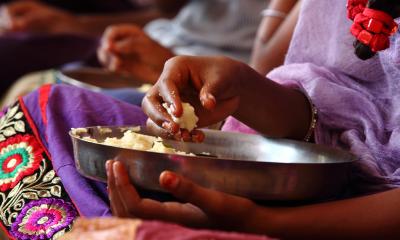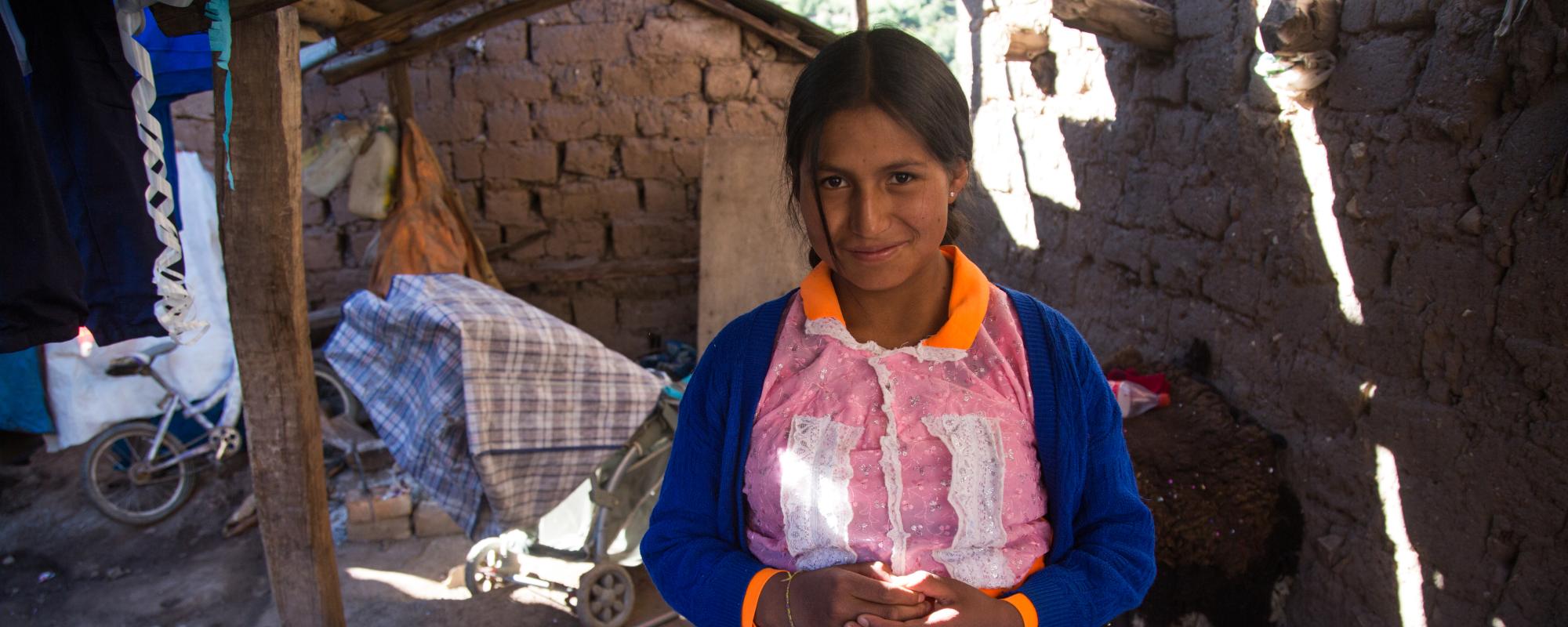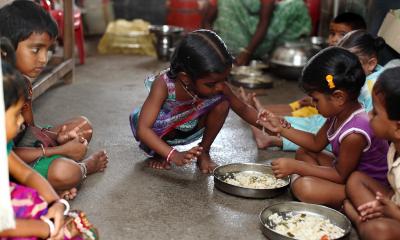
On 25 November 2023 the Peruvian Government introduced new legislation to prohibit all marriages with minors under the age of 18 – and Young Lives evidence played a key part in bringing this about.
The new law has closed a previous legal loophole which permitted teenagers to be married from the age of 14 years under certain conditions, with consent from at least one parent, despite the minimum legal age of marriage of 18 years for both girls and boys. Not only does the new law close this loophole, it also enables girls who were married as minors to have their marriages annulled.
This legislative change is the result of years of evidence-gathering, lobbying and policy engagement behind the scenes, with Young Lives research, in particular playing a transformative role in building a compelling evidence base to champion the need for change.
Leading up to the new Parliamentary Bill, Young Lives’ Peru team presented evidence on the impacts of early marriage and cohabitation through numerous presentations and briefings to key government officials, including in the Ministry of Women and Vulnerable Populations and the Ministry of Education. When the bill was presented to Congress in September 2022, Young Lives evidence was directly cited by Congresswoman Flor Pablo, who then invited Young Lives team members to present their findings at an influential congressional roundtable.
Dr Alan Sanchez, Young Lives Senior Quantitative Researcher and part of the group who presented at the roundtable, says: ‘Having such a robust evidence base was critical, because many people in Peru didn’t actually believe that early marriage had negative consequences.’
However, while the change in Peru’s legislation is an incredibly important step in protecting young girls from child marriage, legislation alone is not enough. The Young Lives study shows that poverty, gender inequality, and discrimination are key drivers of child marriage, meaning that policymakers need to adopt a broad approach to deliver real change for girls and young women. Tackling the root causes of child marriage also involves working closely with whole communities, including men and boys, and ensuring vulnerable girls and young women are protected by effective safety nets.
In 2022, Young Lives (YL) India Country Director, Dr. Renu Singh, was invited to present evidence to the Indian Parliamentary Standing Committee examining a new bill to increase the legal age of marriage for women from 18 to 21 years of age - this would be a seismic policy shift for a country where the majority of young women currently get married between the ages of 18 and 21, and an estimated one in four girls are still married before the age of 18.
Building on many years of engagement with key government partners, our longitudinal evidence is continuing to inform this huge potential change in the law. By increasing the marital age of women from 18 years to 21 years (on a par with men), the bill aims to improve the health and well-being of young women and their children, reduce the incidence of teenage pregnancies and support women to secure better education and work opportunities.
Significantly, YL evidence demonstrates that raising the legal age of marriage alone will not be enough to deliver the intended positive impacts on the lives of young women and their children; rather, policymakers need to adopt a broad approach to addressing early marriage.
A final decision on this bill is expected in the coming year, following the appointment of a new Chair of the Parliamentary Standing Committee.
On 25 November 2023 the Peruvian Government introduced new legislation to prohibit all marriages with minors under the age of 18 – and Young Lives evidence played a key part in bringing this about.
The new law has closed a previous legal loophole which permitted teenagers to be married from the age of 14 years under certain conditions, with consent from at least one parent, despite the minimum legal age of marriage of 18 years for both girls and boys. Not only does the new law close this loophole, it also enables girls who were married as minors to have their marriages annulled.
This legislative change is the result of years of evidence-gathering, lobbying and policy engagement behind the scenes, with Young Lives research, in particular playing a transformative role in building a compelling evidence base to champion the need for change.
Leading up to the new Parliamentary Bill, Young Lives’ Peru team presented evidence on the impacts of early marriage and cohabitation through numerous presentations and briefings to key government officials, including in the Ministry of Women and Vulnerable Populations and the Ministry of Education. When the bill was presented to Congress in September 2022, Young Lives evidence was directly cited by Congresswoman Flor Pablo, who then invited Young Lives team members to present their findings at an influential congressional roundtable.
Dr Alan Sanchez, Young Lives Senior Quantitative Researcher and part of the group who presented at the roundtable, says: ‘Having such a robust evidence base was critical, because many people in Peru didn’t actually believe that early marriage had negative consequences.’
However, while the change in Peru’s legislation is an incredibly important step in protecting young girls from child marriage, legislation alone is not enough. The Young Lives study shows that poverty, gender inequality, and discrimination are key drivers of child marriage, meaning that policymakers need to adopt a broad approach to deliver real change for girls and young women. Tackling the root causes of child marriage also involves working closely with whole communities, including men and boys, and ensuring vulnerable girls and young women are protected by effective safety nets.
In 2022, Young Lives (YL) India Country Director, Dr. Renu Singh, was invited to present evidence to the Indian Parliamentary Standing Committee examining a new bill to increase the legal age of marriage for women from 18 to 21 years of age - this would be a seismic policy shift for a country where the majority of young women currently get married between the ages of 18 and 21, and an estimated one in four girls are still married before the age of 18.
Building on many years of engagement with key government partners, our longitudinal evidence is continuing to inform this huge potential change in the law. By increasing the marital age of women from 18 years to 21 years (on a par with men), the bill aims to improve the health and well-being of young women and their children, reduce the incidence of teenage pregnancies and support women to secure better education and work opportunities.
Significantly, YL evidence demonstrates that raising the legal age of marriage alone will not be enough to deliver the intended positive impacts on the lives of young women and their children; rather, policymakers need to adopt a broad approach to addressing early marriage.
A final decision on this bill is expected in the coming year, following the appointment of a new Chair of the Parliamentary Standing Committee.



